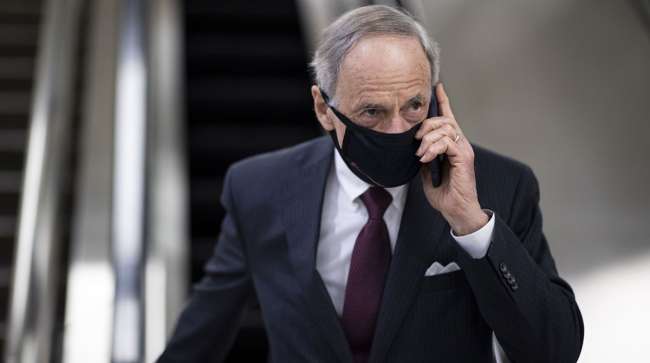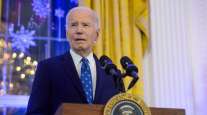Senior Reporter
US Senate Committee Embraces Climate Change Policy, Sen. Carper Says

[Stay on top of transportation news: Get TTNews in your inbox.]
A priority for the surface transportation committee in the U.S. Senate will be to address myriad concerns linked to climate change, the panel’s new leader said.
“Our nation is suffering from multiple crises, but none are greater — or more imminent if we fail to act — than the climate crisis,” Sen. Tom Carper (D-Del.), chairman of the Environment and Public Works Committee, noted in a statement Feb. 4.
“I do not see this crisis through partisan eyes for partisan purposes. I see this crisis through the eyes of the American people, who see the effects of climate change every day.”
I am humbled and honored to serve as @EPWCmte Chairman during such a critical time for our country and planet. Let’s get to work!https://t.co/bzx7M6SB23 — Senator Tom Carper (@SenatorCarper) February 5, 2021
The panel, tasked with updating the nation’s premier federal highway law by this fall, is expected to begin debate on surface transportation policy in the coming weeks. Carper, formerly the panel’s ranking member, said he is embracing President Joe Biden’s “build back better” climate change-centric infrastructure agenda. He also expressed a sense of urgency to achieve net-zero emissions economywide within three decades.
“We will create millions of good-paying jobs with labor protections along the way and ensure no community gets left behind in the process. That’s what it means to ‘build back better,’ and that is the challenge ahead of us,” added Carper. Working alongside the chairman on legislation will be the committee’s top Republican, Sen. Shelley Moore Capito of West Virginia.
Last month, Carper applauded Biden’s executive orders on commencing a whole-of-government strategy to climate change.
“Meeting the demands of the climate crisis is an urgent challenge that presents us with an incredible opportunity. I’m thrilled that the Biden administration is wasting no time capitalizing on that opportunity in ways that benefit the American people and our planet,” Carper said. “With his executive action today, President Biden is laying the foundation for bold, governmentwide action that puts us on a path to net-zero emissions by 2050. Importantly, he’s doing so in a way that prioritizes American workers, environmental justice and scientific integrity.”
During the previous session of Congress, the Environment and Public Works Committee approved a multiyear highway bill with provisions pertaining to climate change policies. Senate Republican leaders did not consider on the floor of the chamber EPW’s five-year, $287 billion highway policy bill. The measure would have, among other things, proposed streamlining environmental permitting regulations.
.@POTUS, I can’t wait to get to work. https://t.co/jSqXQd7on5 — Rep Peter DeFazio (@RepPeterDeFazio) February 5, 2021
The 2015 highway policy law, known as the FAST Act, expires at the end of September. Carper’s EPW committee, as well as the House Transportation and Infrastructure panel, led by Rep. Peter DeFazio (D-Ore.), have jurisdiction over highway policy. Thus far, congressional Democrats in control of the House and Senate have not proposed long-term funding proposals for highway programs.
The Highway Trust Fund, a federal account that anchors the national highway law, relies on insufficient revenue from fuel taxes. The 24.4 cents-per-gallon diesel tax and 18.4 cents-per-gallon gasoline tax were approved by Congress in 1993. The White House also has yet to announce a funding proposal for highway programs.
Biden recently met congressional Democrats at the White House this month to affirm his views on climate change, and remind policymakers of plans for achieving significant environmental and infrastructure policies this year.
“So we got a chance to do something big here,” Biden said Feb. 5. “I can hardly wait to sit down with [Rep.] Peter DeFazio to work on infrastructure.”
Want more news? Listen to today's daily briefing below or go here for more info:




